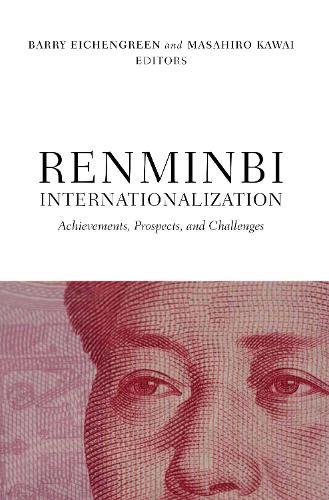
Renminbi Internationalization: Achievements, Prospects, and Challenges
(Paperback)
Publishing Details
Renminbi Internationalization: Achievements, Prospects, and Challenges
By (Author) Barry Eichengreen
Edited by Masahiro Kawai
Bloomsbury Publishing PLC
Brookings Institution
11th February 2015
United States
Classifications
Professional and Scholarly
Non Fiction
Economic growth
International economics
Business innovation
332.450951
Physical Properties
Paperback
402
Width 156mm, Height 234mm
454g
Description
Renminbi internationalization is a hot topic, for good reason. It is, essentially, a window onto the Chinese government's aspirations and the larger process of economic and financial transformation. Making the renminbi a global currency requires rebalancing the Chinese economy, developing the country's financial markets and opening them to the rest of the world, and moving to a more flexible exchange rate. In other words, the internationalization of the renminbi is a monetary and financial issue with much broader supra-monetary and financial implications.
Author Bio
Barry Eichengreen is George C. Pardee and Helen N. Pardee Professor of Economics and Political Science at the University of California, Berkeley. His books include Hall of Mirrors: The Great Depression, the Great Recession, and the Uses --and Misuses --of History (Oxford, 2013).Masahiro Kawai is project professor at the Graduate School of Public Policy, University of Tokyo. He was dean of the Asian Development Bank Institute from 2007 to 2014. Before this, he was special adviser to the ADB president in charge of regional economic cooperation and integration and professor of economics at the University of Tokyo's Institute of Social Science. Kawai served as chief economist for the World Bank's East Asia and the Pacific Region from 1998 to 2001, and as deputy vice minister of finance for international affairs of Japan's Ministry of Finance from 2001 to 2003.
